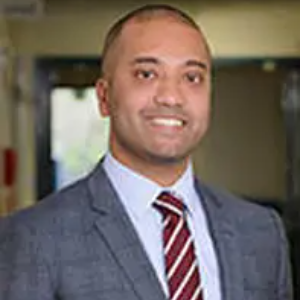
Neurosurgeon
Neurosurgeon
a Neurosurgeon (Brain and Spine) and has a practice located in West Perth.

Neurosurgeon
He works at the Neurology Department at Sir Charles Gairdner Hospital, and at Perron Institute for Neurological and Translational Science where he recently started a dedicated Epilepsy and Pregnancy clinic, the first of its kind in Western Australia.

Neurosurgeon
and cerebrovascular surgery. He provides the West Australian functional neurosurgery service at QEII Medical Centre. Prof Lind has published in several areas of general neurosurgery but is currently focussing his clinical research on functional neurosurgery which encompasses surgery for movement disorders, neuropsychiatric disorders and pain.

Neurosurgeon
which is the study of behavioural manifestations of neurological processes. The study of behavioural neurology includes the dementias like Alzheimer’s disease and frontotemporal dementia. He is especially interested in the dementias in young adults. He is also interested in the application of new diagnostic techniques and genetic information to the diagnosis and management of patients with neurodegenerative disorders.

Neurosurgeon
a Neurosurgeon (Brain and Spine) and has a practice located in Subiaco.

Neurosurgeon
Hospital, Sir Charles Gairdner Hospital and Royal Perth Hospital. After graduating from UWA in 2001 and completing his post-graduate medical and surgical training, Arul commenced his specialist neurosurgery training in 2006, working at Wellington Hospital in New Zealand, the Alfred Hospital in Melbourne and Sir Charles Gairdner Hospital in Perth.

Neurosurgeon
The University of Western Australia, graduating in 1977 and gained his fellowship of the Royal Australasian College of Physician (FRACP) 1984. Dr Knezevic is a member of the Australian and New Zealand Association of Neurologists (ANZAN).

Neurosurgeon
further sub-specialty fellowships. These included a Complex Spine Fellowship at Toronto Western Hospital, Canada, and an Epilepsy/Brain tumour Fellowship at Yale University in the US. He returned to Western Australia in 2006, and now performs general neurosurgical procedures with sub-specialty interests in brain tumours (including lesions in the eloquent cortex), pituitary tumours, epilepsy surgery, spinal tumours and complex spinal conditions.
As a branch of internal medicine, nephrology deals with kidney and hypertension diseases. Nephrologists diagnose and treat kidney disease and advise patients on how to protect themselves from them.
Basically, nephrology deals with prevention, diagnostics, conservative (non-operative) therapy and aftercare of kidneys – and hypertensive diseases. The implementation of all extracorporeal blood purification procedures (dialysis, apheresis, immunoadsorption) and the care of patients with a transplanted kidney also fall within the specialist field of nephrology.
Nephrology is much more than dialysis medicine on the contrary, the subject covers a wide range of topics. In addition, nephrology has many interfaces with other subjects . Interdisciplinary work is therefore part of everyday clinical practice for nephrologists.
Nephrologist is a professional title that is protected by professional law and may only be used by doctors who have successfully completed specialist training. Pediatric ephrology is an independent branch of pediatrics.
Our kidneys are real all-rounders! They filter the entire amount of blood up to 300 times a day. In total, up to 1,800 liters pass through the kidneys every day. This corresponds to 1.5 liters of urine daily. If kidney tissue dies, regeneration is not possible. Kidney damage also affects other important organs such as the heart, lungs and brain. A broad education and close cooperation with geriatricians, cardiologists, diabetologists and rheumatologists therefore distinguish the work of nephrologists. Prevention, early detection, modern diagnostics and adapted therapies are of great importance, especially for the kidneys. A trusting doctor-patient relationship is crucial for successful treatment. Nephrologists need to get a comprehensive picture of the living situation of their patients. It&rsquo’s about finding the right treatment path together. This path begins in the nephrological consultation hour. Often a lot has already been done for the kidneys when patients change their lifestyle and eating habits. If that is not enough, the use of medication is suggested.
© Copyright 2022 Lawyer Source. All rights reserved.